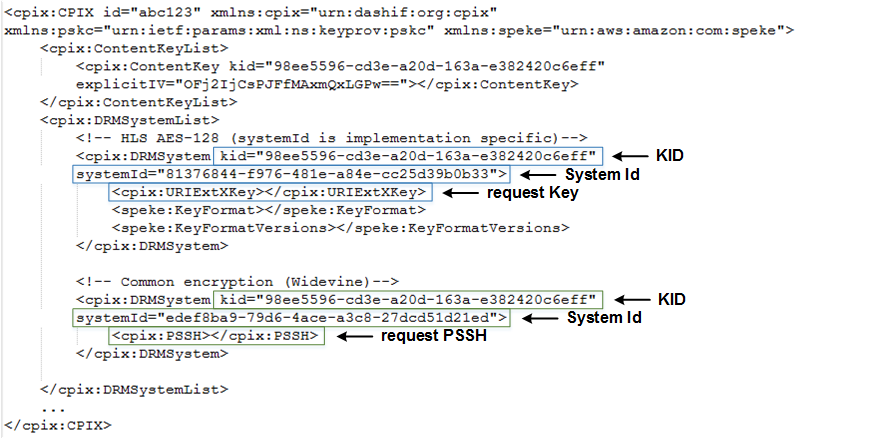SPEKE API v1 - Standard payload components
In any SPEKE request, the encryptor can request responses for one or more DRM systems. The encryptor specifies the DRM systems in <cpix:DRMSystemList> of the request payload. Each system specification includes the key and indicates the type of response to return.
The following example shows a DRM system list with a single DRM system specification:

The following table lists the main components of each <cpix:DRMSystem>.
| Identifier | Description |
|---|---|
|
|
Unique identifier for the DRM system type, as registered with the DASH IF organization. For a list, see DASH-IF System IDs |
|
|
The key ID. This is not the actual key, but an identifier that points to the key in a hash table. |
|
|
Requests a standard unencrypted key. The key response type must be either this or the |
|
|
Requests a Protection System Specific Header (PSSH). This type of header contains a reference to the |
_Example Requests for Standard Key and for PSSH _
The following example shows part of a sample request from the encryptor to the DRM key provider, with the main components highlighted. The first request is for a standard key, while the second request is for a PSSH response:

_Example Responses for Standard Key and for PSSH _
The following example shows the corresponding response from the DRM key provider to the encryptor:
